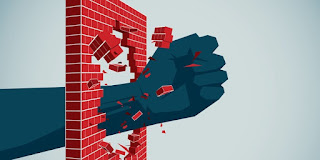 |
| Image source: forbes.com |
Invest in good relations with others
Good relationships pave the way for help or assistance to come in naturally when a business needs it. Many business owners form quality relationships with business partners in the industry. Just maybe, one of the relationships you are fostering today will save you in the future. There is absolutely nothing wrong with bringing in a helping hand.
Surround yourself with smart people
Early on, invest in the kinds of people who will turn out to become assets in your company. Give them opportunities to grow, so they will choose to remain with you for the long haul. If adversity comes, your people will defend the fort as though it was their own, by doing whatever it is that they do exceptionally well.
 |
Image source: entrepreneur.com
|
Be aware of your strengths and leverage these at all times. If you know your organization is particularly good at doing something, find ways to excel in it continuously. Once adversity is done doing its damage, you will be the first to be looked upon by the public for the expertise that you can provide once the dust settles.
As Michael Saltzstein would suggest, the best way to overcome adversity is to prepare for it as early as you begin your entrepreneurial journey.
Michael Saltzstein is a seasoned expert in business who specializes in risk management and corporate finance. He is a visionary leader who is known to adapt and collaborate with others well. For regular updates, follow this Twitter page .
Comments
Post a Comment